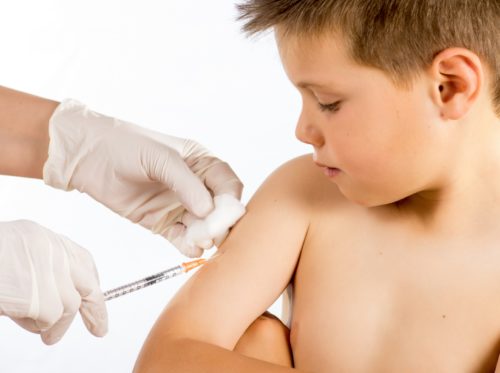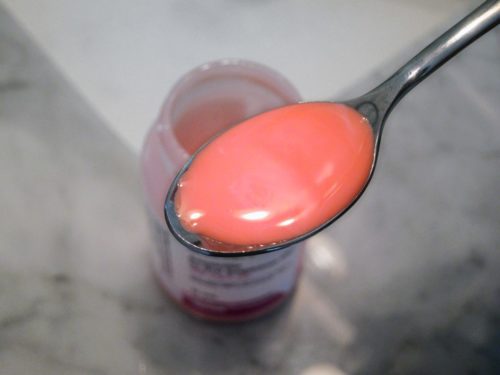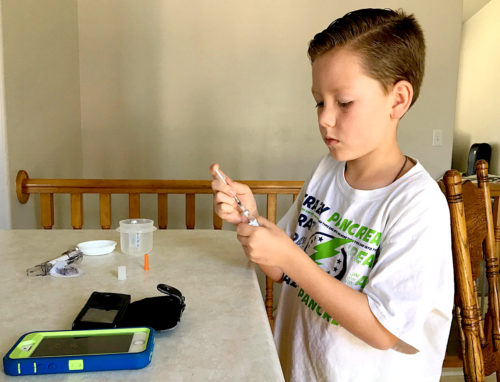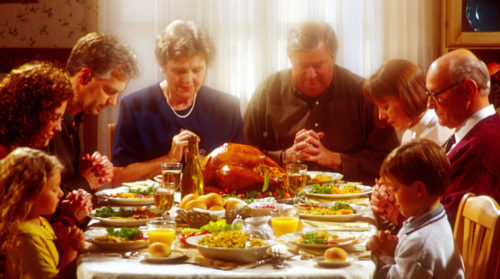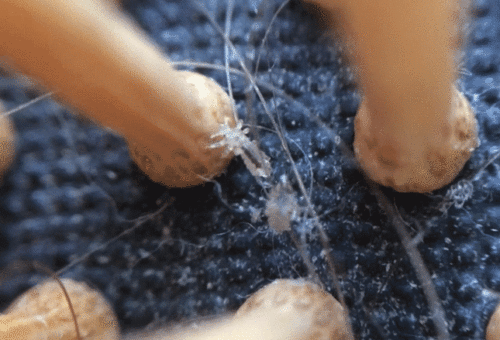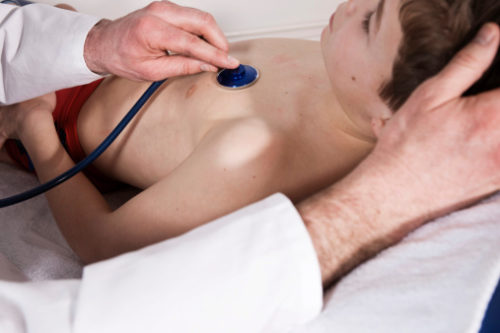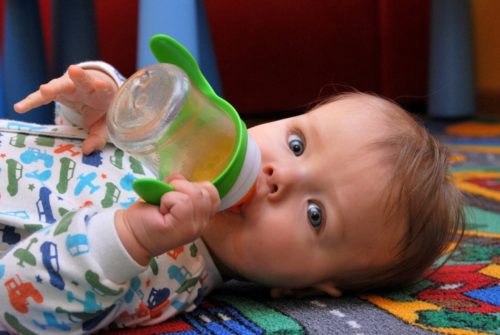Like we do every year, and sometimes twice, we post the newly updated Immunization Schedule recommendations from the CDC and the AAP. You can get them direct from the CDC of course, but I post them here because I want to do my part in spreading the word And, you’re already here right? So why waste the effort of looking it up yourself?>
This year the link to the CDC page has BLOATED into a bunch of self-promoting side stuff; so, I’ve had to clip their page in order to display it but not foul up my whole page. However, I do give you all the links to their full pages—should you want to check out the specifics. In fact here’s a good link right HERE and HERE but there are others I’ll give you too.
Read more →
Would it surprise you to know that: if YOU were one of the medicine police and one morning selected 100 mothers or fathers to just drop in and double-check the liquid medicine they had measured and were about to give their kid – most of them would be wrong?!
We would have to have been living under a rock in a desert somewhere NOT to have noticed the inordinate lengths pharmacies and drug companies have gone to in the past 10 years to improve accuracy of parents measuring medicines. But, still to this day (2018), parents are (and often) making BIG errors when measuring medicines.
Read more →
Talk To Teens and other people
You just heard Celeste Headlee of NPR assert that: “Actually talking TO teens is easy, it’s having them listen while you’re doing it that takes some amount of skill.” And it’s absolutely true, you can talk to teens if you know the rules.
Ms. Headlee has worked as a radio host for decades, and she knows the ingredients of a great conversation: Honesty, brevity, clarity and a healthy amount of listening. She shares 10 useful rules for having better conversations. “Go out, talk to people, listen to people,” she says. “And, most importantly, be prepared to be amazed.”
When your job hinges on how well you talk to people, she tells us, you learn a lot about how to have conversations — and that most of us don’t converse very well. Since 1999 she has worked in public radio as a reporter, host and correspondent for NRP and on shows like “talk of the Nation,” “All things considered” and “Weekend Edition.” In addition she still sings professional opera and is a granddaughter of composer William Grant Still.
The 10 “takeaways” – Talk To Teens
1- Don’t multi-task; be in the moment, don’t be half in.
2- Don’t pontificate – assume there’s something you can learn. Bill Nye says: “everyone you meet knows something that you don’t.”
3- Use open ended questions – who, what, where, when why. DON’T USE: “did you feel terrified?” DO USE: “how did that feel?”
4- Go with the flow. Thoughts will come into your mind and you need to let them GO right out of it. Your own thoughts (experiences) are distractions.
5- If you don’t know, say that you don’t know. NPR knows they are accountable for everything they say, talk shouldn’t be cheap. You are accountable for what you claim.
6- Don’t equate YOUR experience with theirs. If they lost a family member, don’t start talking about loosing yours. They are NOT the same, and this is not about you. Someone asked Stephen Hawking what his IQ was. He responded “I have no idea, people who brag about IQ are losers.”
7- Try not to repeat yourself, it’s condescending and it’s really boring.
8- Stay out of the weeds of your experiences. People don’t care about the names, dates, places or the specifics of things that you struggle to remember anyway. People don’t care, forget about your details.
9- Listen – (not the last but the most important) Calvin college said “no man ever listened himself out of a job.” When I’m talking I’m in control, I’m center of attention. It Takes effort and energy to actively pay attention to someone; but if you can’t do that, you’re not having a conversation.
10- Be brief
Headlee reveals: I keep my mouth shut as much as I can, I keep my mind open, and I’m always prepared to be amazed. She had a Famous grandpa. People came from all over to talk with him. Afterward her mom would come to her and ask: “do you know who that was?” She said that “I grew up thinking everyone has some hidden amazing thing about them.”
The Environmental Determinants of Diabetes in the Young (TEDDY) study holds a deep interest for me—really everything about type 1 diabetes. And has, actually, from the very first clinical years of medical school.
Service with Dr. Marv Rallison in pediatric endocrine clinic gave me many early career “firsts” which continued into leading diabetic clinics of my own during my residency and obtaining grants for early studies of hemoglobin A1C (glycosylated hemoglobin)—which eventually revolutionized care of diabetic children and has become the current mainstay of management.
Read more →
Neuroscientist Greg Gage—Plants and Brains
Co-founder of “Backyard Brain”
Perhaps you are one of the million and a half people who’ve already watched this video on YouTube about brains and plants—it did go viral after all.
So, what do you think now that you’ve watched the video? Do plants have brains? Greg showed that plants can move when they decide they want to by creating electronic action potentials just like the heart of humans.
He showed that plants can move when they want to see the sun better, when they are touched and when they find something to eat. And, he showed that some of them can actually count and even “talk” to other plants using their action potentials. Does that mean that they have a “brain?”
Access to health care is a crisis for a billion people on the planet in 2017.
Dr. Raj Panjabi
Providing Health Care Where There Is None
Civil war erupted in Liberia on Christmas Eve 1989, now the country of 4 million has just four doctors to serve the entire population; which, in perspective is like making all inhabitants of San Francisco be seen by just 10 doctors!
Worldwide, a billion people lack access to health care because they live too far from a clinic.
Dr. Panjabi’s quest to train community health workers is the only answer to this crisis of intolerable proportions. He was given the 2017 TED prize in hopes that his work training workers can expand to scale for the billion people without health care.
Panjabi’s experience training his own workers so far on only 30 proven medical interventions shows that training more could save nearly 30 million mothers and children by 2030.
The statistics show that providing just 30 proven services by community health workers will save 3 million lives a year.
Not too much to ask.
It was over TWO HUNDRED years after it was first “eaten” (the dinner) before Thanksgiving (the holiday) became “officialized” in the United States.
Every pre-school child knows about the Pilgrims eating their first harvest meal with the Wampanoag Indians. They might not know the dinner was in 1621 and that Abraham Lincoln made it a national holiday in 1863; but, they do know about gratitude and being grateful—or at least I hope they do.
Read more →
I’ve written about back to school diseases and problems before but it seems that questions and issues just keep the topic alive and asking for an update.
This will be just a quick update of 15 back to school diseases your child may encounter now that school bells are ringing again.
Read more →
True compassion like that of Dr. Sam Rodriguez at the Stanford Children’s Hospital isn’t unique, just rare. A child’s experience with surgery is not the same everywhere; and, I’m sorry to admit, not all surgeons, anesthesiologists or hospital administrators are as caring—even if they are as talented. Compassion for others is a hard thing for parents to teach, as I’ve written about before.
The thing is, except for the gadgets and gizmos, a child’s hospital experience hasn’t changed much in the past 50 or so years. They are still afraid, they still don’t understand what is happening to them, they still feel disenfranchised and out of control… they still respond to people who care.
In the early 70s I felt inadequate next to my mentor Dr. Elwin at Primary Children’s Hospital in Salt Lake City Utah as he showed me how he engaged his patients in the world of Sesame Street. He had previously met them in the security of their parents close by and obtained their favorite character and flavor. He was now holding them in his arms with their flavor permeating the mask and singing a song in the voice of their character. Before a single verse they were asleep and quickly transferred to the table with an IV started.
My patients I felt were cheated! I bought a tape, listened to it incessantly until I had mastered the songs and voices and attempted the engaging patter I had been shown. Still, I felt inadequate next to my mentor; but, that single rotation altered the way I felt about and dealt with patients from then on.
Dr. Sam Rodriquez
Pediatric Anesthesiologist, Surgery at Children’s Hospital, Stanford
Preoperative visits, favorite character, options to choose from, feeling like you’ve got some control, favorite flavor—a doctor who “cares”; the perfect storm of techniques when a physician combines his medical skills with a love for children.
In the ’70s during it was Dr. Elwin at Primary Children’s Hospital—flavored scents in masks, Sesame Street characters and his “lap induction” technique; today it is Dr. Rodriquez at Stanford—flavored scents in masks, full field video projection and a surgical table that “blasts off.” Same thing—different era… still uncommonly rare and beautiful to watch.
To my way of thinking the very thought that medical researchers are forced to stop what they are doing on important issues beyond our control and do research to prove that marijuana is bad for you and shouldn’t be used as a “toy” is unconscionable to the extreme.
We just can’t let the scammers and dealers destroy unborn babies like they did pushing tobacco however; so, that’s just what researchers had to do.
Read more →
Once upon a time doctors were almost thought of as wizards; not so much any more and it all has to do with the ability (and desire) to do a thorough physical exam.
No kiddin’. Before the invention of so much gadgetry physicians relied on their acute senses for ever-so subtle clues the body gives when it’s not running full on all cylinders but before a part gives out entirely.
Read more →
I learned the adage “if a little is good, a lot is better” just after sitting in my pharmacology class and seeing Dr. Goodman hold up a book entitled: “Two For A Horse, One For A Human.”
Most generation of parents eventually find something to get “wrong” (especially if you ask the children) but it seems the current generation of parents is getting picked on… a lot. The latest? Fruit Juice.
Read more →
:

